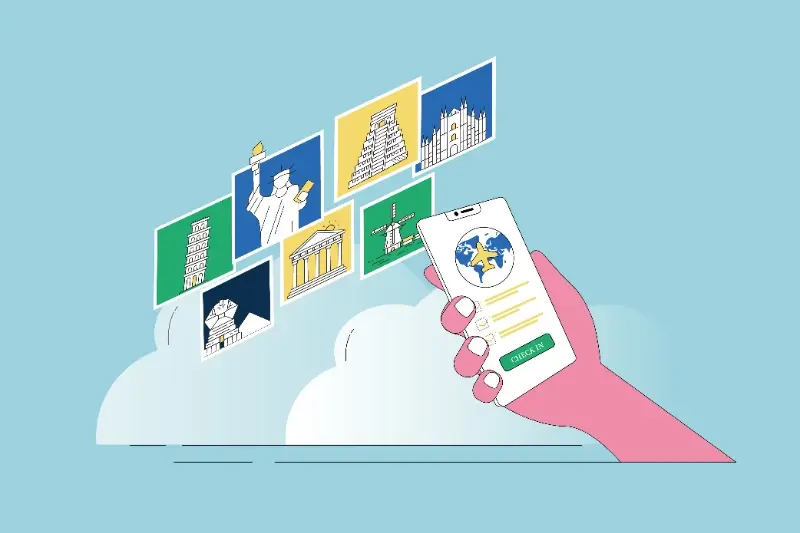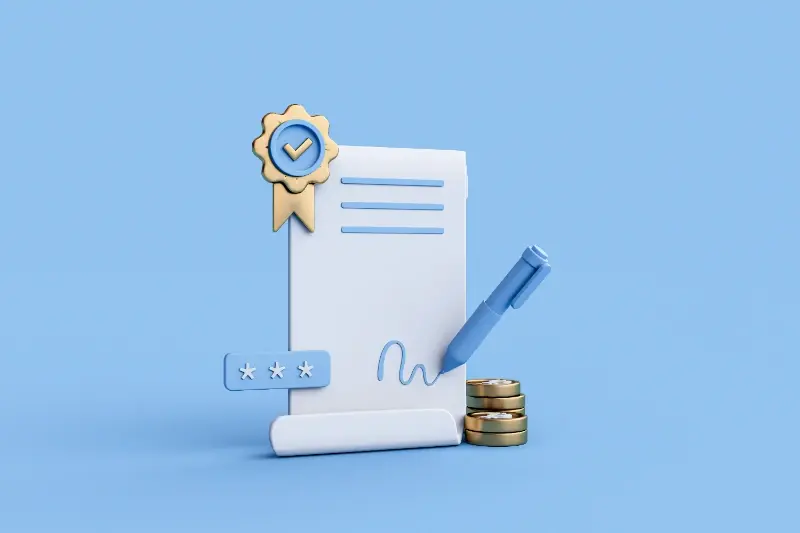When Your App Needs Music Licensing (And How Much It Costs)
Picture this: you're weeks into developing your brilliant music app when someone mentions licensing fees. Suddenly you're staring at potential costs that could completely derail your budget—or worse, realise you might be breaking copyright laws without even knowing it. This happens more often than you'd think, and frankly, it's one of those topics that makes many app developers want to hide under their desks.
The truth is, music licensing for mobile apps isn't just complicated; it's properly confusing. You've got different types of rights, various licensing bodies, and costs that seem to change depending on who you ask. Some developers think they can just grab any song off Spotify and stick it in their app. Others assume that royalty-free means completely free. Both approaches can land you in serious legal trouble.
The music industry generates billions in licensing revenue each year, and mobile apps represent one of the fastest-growing segments for music rights holders
What makes this whole situation trickier is that music licensing isn't optional—it's the law. Whether you're building a fitness app that plays background music, a social platform where users share audio clips, or a gaming app with a killer soundtrack, you need to understand when licensing applies to your project. The good news? Once you know the rules, the process becomes much more manageable. The costs become predictable. And you can build your app without constantly worrying about legal issues down the road.
When Apps Actually Need Music Licensing
Not every app needs music licensing—but if yours does and you skip this step, you're looking at serious legal trouble. The question isn't whether you're a big company or small startup; it's about what your app actually does with music.
The clearest cases are apps that let users play, stream, or interact with copyrighted music. Music streaming services, radio apps, and social media platforms where people share videos with background tracks all need proper licensing. But here's where it gets tricky—many app developers don't realise their apps fall into this category until it's too late.
Apps That Definitely Need Music Licensing
- Music streaming and radio apps
- Social media platforms with music features
- Fitness apps with background music
- Gaming apps using copyrighted tracks
- Video editing apps that include music libraries
- Karaoke and music creation apps
- Apps that sync music with other content
Even background music in your app's interface can require licensing if it's copyrighted material. I've seen developers think they're safe because they're not a "music app," but if you're using that catchy tune in your meditation app or workout tracker, you still need the rights.
The good news? Apps that only use royalty-free music, original compositions you own, or apps with no music at all don't need traditional music licensing. But be careful with "royalty-free" music—it doesn't always mean "licence-free." Some royalty-free tracks still require you to purchase usage rights, just without ongoing royalty payments.
Understanding Different Types of Music Rights
When we talk about music licensing, we're actually dealing with several different types of music rights—and this is where things get a bit complicated. Every piece of music you hear has multiple layers of ownership, and each one needs to be cleared before you can use it legally in your app.
The two main categories you need to worry about are composition rights and recording rights. Composition rights belong to the songwriter or publisher; they cover the actual melody, lyrics, and structure of the song. Recording rights, on the other hand, belong to whoever owns that specific recording—usually the record label or artist who performed it.
Breaking Down the Main Music Rights
- Mechanical rights - needed when your app reproduces music
- Synchronisation rights - required when music plays alongside visual content
- Performance rights - covers public performance of music
- Master recording rights - permission to use the actual recorded version
Here's what makes this tricky: you might need multiple types of rights for a single song. A fitness app that plays music during workouts would typically need mechanical rights for reproduction, performance rights for public use, and master recording rights for the specific version being played.
Always identify which specific rights you need before approaching rights holders—it shows you understand the process and can speed up negotiations significantly.
The complexity increases when you realise that different parties often own different rights to the same song. The original songwriter might own composition rights whilst the record label owns the master recording, meaning you'll need to negotiate with multiple parties for complete clearance.
How Much Music Licensing Really Costs
Right, let's talk numbers—because this is probably what you've been waiting for! Music licensing costs vary wildly depending on what type of music you want, how you plan to use it, and frankly, how good your negotiation skills are.
For most mobile apps, you're looking at anywhere from £50 to £5,000 per track. I know that's a massive range, but there's good reason for it. A simple background track from an independent artist might cost you £50-200, whilst a famous song from a chart-topping band could easily run into thousands.
What Affects the Price
The cost depends on several factors that licensing companies consider when setting their rates:
- How popular the song is (chart hits cost more)
- How long you want to use it for
- Whether your app is free or paid
- How many people might download your app
- Which countries you're launching in
Subscription services like AudioJungle or Epidemic Sound offer another route—you pay monthly fees ranging from £15-50 and get access to thousands of tracks. This works well for most app development projects because you get variety without breaking the bank.
The Reality Check
Here's what I've learned after years in this business: most apps don't need expensive music. Unless you're building the next big gaming app or a music streaming service, you can find perfectly good tracks for under £200 each. The key is being realistic about what your app needs and not getting carried away with that one perfect song that costs more than your entire development budget!
Where to Get Proper Music Licences
Right, so you've figured out what type of music licensing you need and you're ready to get things sorted properly. The good news is there are several established places where you can secure legitimate music licences for your app—no need to wander around the internet hoping for the best.
The most straightforward route is going directly to the record labels or music publishers who own the rights. Universal Music Group, Sony Music Entertainment, and Warner Music Group control a massive chunk of popular music; their licensing departments handle app deals regularly. For independent artists, you might deal with smaller labels or the musicians themselves.
Performance Rights Organisations
Performance Rights Organisations (PROs) are your best friend when it comes to getting blanket licences. In the UK, that's PRS for Music; in the US, you've got ASCAP, BMI, and SESAC. These organisations represent thousands of artists and can grant you rights to huge catalogues of music through single agreements.
Getting music licensing right the first time saves you from expensive legal headaches down the road—it's always worth doing properly from the start
Digital Licensing Platforms
There are also specialist digital platforms that make music licensing much simpler for app developers. Services like Songtradr, Musicbed, and AudioNetwork offer pre-cleared tracks with transparent pricing; they handle all the paperwork and rights clearance for you. These platforms won't have the latest chart-toppers, but they offer high-quality music that's already cleared for commercial use. Some even provide AI-powered search tools to help you find tracks that match your app's mood and style perfectly.
Common Music Licensing Mistakes App Developers Make
After working with countless app projects over the years, I can tell you that music licensing mistakes are more common than you'd think. The most frequent error I see? Developers assuming they can just grab any song they like and stick it in their app. This approach leads to some very expensive wake-up calls down the line.
One mistake that catches many people off guard is thinking that buying a song on iTunes or Spotify gives them the right to use it commercially. It doesn't—you've only bought the right to listen to it personally. Using that track in your app without proper licensing can result in hefty fines and legal action.
The "It's Just a Short Clip" Trap
Another common misconception is believing that using just a few seconds of a copyrighted song is fine. There's no magic number of seconds that makes it legal; even a tiny snippet needs proper licensing. I've seen developers get into trouble over loops that last mere moments.
Overlooking Background Music Sources
Many developers forget to check where their background music comes from when using stock audio libraries. Not all royalty-free music is created equal—some requires attribution, others have usage restrictions, and some aren't actually royalty-free at all. Always read the licensing terms carefully before implementing any audio content.
The biggest mistake of all? Not budgeting for music licensing from the start. When you treat music as an afterthought, you either end up with subpar audio that doesn't match your vision or you blow your budget on expensive last-minute licensing deals. Plan ahead and your ears (and wallet) will thank you.
Alternatives to Traditional Music Licensing
If the costs and complexity of traditional music licensing have put you off, don't worry—there are several other routes you can take. These alternatives might not give you access to the latest chart-toppers, but they can still provide high-quality audio for your app without breaking the bank.
Royalty-free music is probably your best starting point. Despite the name being a bit misleading, you still pay for these tracks—but only once. After that initial purchase, you can use the music without ongoing royalty fees. Libraries like AudioJungle and Pond5 offer thousands of tracks across every genre you can think of, with prices starting from just a few pounds per track.
Creative Commons and Public Domain Options
Creative Commons licensed music gives you access to tracks that artists have deliberately made available for wider use. Some require attribution (crediting the artist), whilst others are completely free to use. Public domain music—think classical compositions or very old recordings—is completely free from copyright restrictions.
Always double-check the specific Creative Commons licence requirements. Some allow commercial use, others don't, and getting this wrong could land you in legal trouble.
Commission Original Music
Working with a composer to create original music might seem expensive upfront, but it often works out cheaper than licensing popular tracks. You'll own the rights outright, and the music will be completely unique to your app. Freelance platforms are packed with talented musicians who specialise in app and game audio.
- One-time payment with no ongoing fees
- Complete creative control over the final product
- No worries about other apps using the same tracks
- Can be tailored specifically to your app's mood and functionality
Another option worth considering is the gamification approach to audio, where interactive sound effects and musical elements respond to user actions rather than traditional background music. This can create a more engaging experience whilst avoiding complex licensing requirements.
Conclusion
Music licensing doesn't have to be the nightmare that many app developers make it out to be. Yes, it can seem complicated at first—and yes, it does cost money—but it's really just about understanding what you need and getting the right permissions before you launch.
The key thing to remember is that every piece of music has owners, and those owners deserve to be paid when their work helps make your app better. Whether you're building a fitness app that needs high-energy tracks or a meditation app that requires calming sounds, there's a licensing solution that fits your budget and needs.
We've seen too many developers try to skip this step or hope they won't get caught using unlicensed music. Trust me, it's not worth the risk. The fines can be enormous, and the legal headaches will cost you far more than proper licensing ever would. Plus, there are so many good alternatives now—from royalty-free libraries to AI-generated music—that there's really no excuse for cutting corners.
Start by figuring out exactly what type of music rights you need, then shop around for the best deal. Don't forget to factor licensing costs into your app development budget from day one; it's much easier to plan for these expenses than to scramble for money later when you're ready to launch.
At the end of the day, proper music licensing protects both you and the artists whose work you're using. It's just good business sense, and your users will thank you for creating an app that sounds as good as it looks.
Share this
Subscribe To Our Blog
You May Also Like
These Related Stories

International App Distribution: Navigating Licensing Laws

Data Protection Licensing: GDPR Impact on App Permissions





